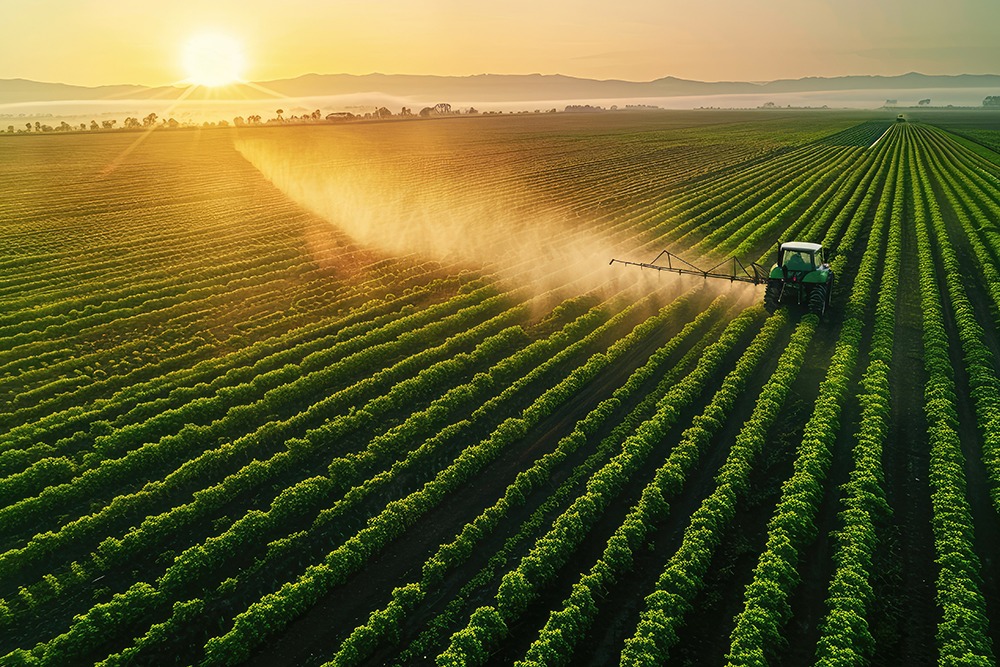No products in the cart.
Revolutionizing Agricultural Logistics: A Tech-Enabled Approach
The global agricultural industry is undergoing a significant transformation, driven by increasing demand for food, changing consumer preferences, and evolving technological advancements. As a result, the logistics sector plays a crucial role in ensuring the timely and efficient delivery of agricultural products to markets worldwide. This blog post delves into the key trends shaping the future of agricultural logistics, with a focus on efficiency and sustainability.
The Impact of Globalization on Agricultural Logistics
Globalization has significantly impacted the complexity of global supply chains. As agricultural products are sourced from diverse regions and transported across vast distances, logistics operations have become increasingly intricate. While globalization offers opportunities for increased market access and economic growth, it also presents challenges such as:
- Supply Chain Disruptions: Global events like pandemics, natural disasters, and geopolitical tensions can disrupt supply chains, leading to delays, shortages, and increased costs.
- Regulatory Compliance: Navigating complex international regulations, tariffs, and customs procedures can be a daunting task for agricultural exporters and importers.
- Food Safety and Quality Control: Ensuring the safety and quality of agricultural products throughout the supply chain is paramount, especially when transporting perishable goods across long distances.
The Role of Technology in Modern Logistics
Technological advancements are revolutionizing the logistics industry, enabling greater efficiency, transparency, and sustainability. Key technologies driving this transformation include:
- Artificial Intelligence (AI): AI-powered algorithms can optimize routing, scheduling, and inventory management, reducing costs and minimizing waste.
- Internet of Things (IoT): IoT devices can track the location and condition of goods in real-time, improving visibility and enabling proactive decision-making.
- Blockchain: Blockchain technology can enhance supply chain transparency, traceability, and security, ensuring the authenticity and quality of agricultural products.
Real-time tracking and predictive analytics are two powerful tools that can significantly benefit agricultural logistics. By monitoring the movement of goods in real-time, logistics providers can identify potential issues and take corrective action promptly. Predictive analytics can help anticipate future demand, optimize inventory levels, and improve forecasting accuracy.
Sustainability in Logistics: Eco-Friendly Practices and Reduced Carbon Footprint
As environmental concerns grow, sustainable logistics practices are becoming increasingly important. By reducing carbon emissions and minimizing environmental impact, the agricultural logistics industry can contribute to a more sustainable future. Some key strategies for achieving this include:
- Mode Shift: Shifting to more sustainable modes of transportation, such as rail and water, can significantly reduce carbon emissions.
- Optimized Routing: Implementing advanced route optimization algorithms can minimize fuel consumption and reduce transportation distances.
- Energy-Efficient Warehousing: Adopting energy-efficient technologies, such as LED lighting and solar panels, can reduce energy consumption in warehouses.
- Sustainable Packaging: Using eco-friendly packaging materials and minimizing packaging waste can help reduce the environmental footprint of agricultural logistics.
By embracing technology and adopting sustainable practices, the future of agricultural logistics looks promising. By optimizing operations, reducing costs, and minimizing environmental impact, the industry can play a vital role in ensuring a sustainable and resilient food supply chain.


Leave a Reply